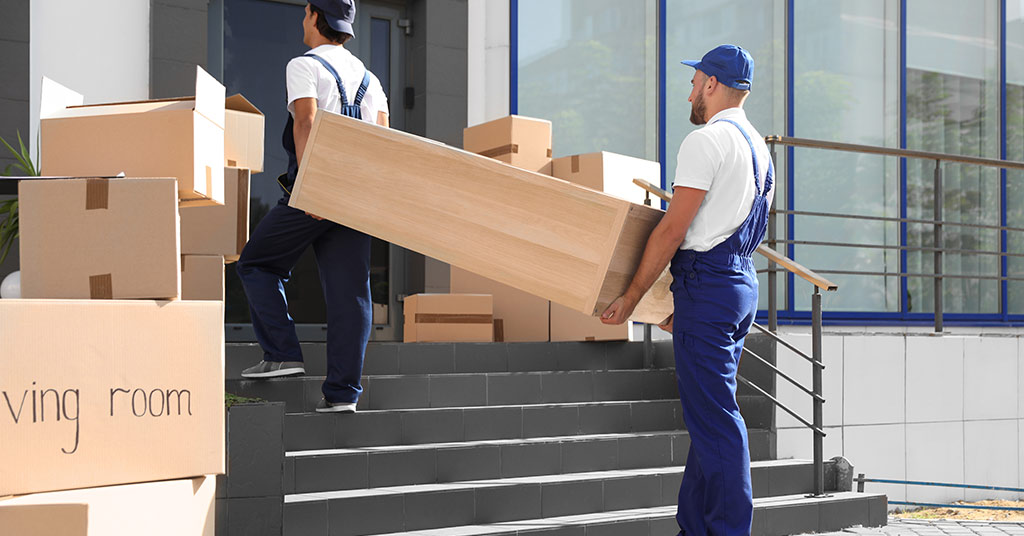Changing houses can be a very exhausting task. Aside from all the physical labor, there’s also the emotional toll of leaving your old home where you’ve always lived.
If you’re planning on moving soon and don’t know where to start from, don’t worry, because we’re here for you! To make the process of shifting places as easy as we possibly can, we’ve compiled a list of the top 12 most important things you need to keep in mind when moving.
1. Find and Decide A Place To Move Into
This may sound very obvious, but trust us when we say that a lot of people forget to do this properly!
Before you start packing, you need to be sure that your new home is the right one for you, which can be done by doing the necessary homework. Think about the most significant feature you would want in a new residence. That unique feature could be anything–from a spacious kitchen to a backyard for having barbeques and other leisure activities. Does your chosen home provide that?
Also, consider the location of your new home. Is it an ideal place to carry your everyday routine? How far away is it from your workplace? From your children’s schools? Are there any readily available transportation facilities? See if the neighborhood has a high crime rate, too.

Taking a holistic view of the property and asking these relevant questions before making the purchase will make it less likely for you to go wrong.
An easy tip is to move into a temporary residence in the area where you’re considering buying a home. This way, you can become familiarized with the neighborhood, allowing you to decide if it’s the best fit for you.
2. Decide If You Need Professional Help To Move
The ultimate question people face when shifting homes is if they’ll do the moving process themselves or hire professional movers.
The first thing to think about is your type of move. How difficult is it? Consider the items you’re taking. Are they bulky and hard to transport? Are there a lot of valuable things that are easily breakable?
Assess the advantages and disadvantages of both types of moving processes. As a general rule, remember that the more complicated and difficult your moving process, the higher the likelihood that hiring professional movers is the right option for you.
3. Choose The Right Movers
If you’ve decided on hiring professionals to do your moving process for you, you must choose the right ones. To ensure that your moving process is as easy and as stress-free as possible, you need reliable workers with a good amount of experience.
Below, we’ve listed a few steps that you can take to hire the right local moving company.
- Approach friends or acquaintances who have shifted recently, and inquire about their moving experience. If they’re full of praises and compliments, then take the company’s contact number. If they aren’t too happy about how things turned out, then it’s probably best to stay away.
- You can also get in contact with many prestigious moving companies by filling in a moving quote.
- Ask companies for estimates of the moving costs before hiring them.
- Compare the different rates and kinds of services that are being offered.
- Find a company that meets your changing requirements and criteria. Consider also the cost–it must be within your budget.
- Authenticate your chosen company’s licensing information, and scan their website for customer reviews. Pay special attention to positive reviews, and keep your eye out for negative feedback.
- Make sure to thoroughly read a company’s work contract before hiring them.
4. Narrow Down Your Possessions
This will be the most emotionally draining task you will do when planning to move. Locate all of the items in your house, then choose the ones you’ll be taking with you and the ones you’ll be leaving behind. Thus, you need to make a list of the essential items you need at your new place
Remember to think practically. Draw up a floor plan of your new home, then try and visualize which items can fit in there and which will be an unnecessary burden. There will, of course, be objects that don’t really have a place in your new home but still hold a lot of sentimental value. You can take these possessions with you, but remember, don’t go overboard in assigning every useless item.

Unnecessary items in your house can include damaged items that don’t function anymore, outdated objects, such as childhood clothes or stuffed animals, and any special equipment that no one will be using and which won’t fit into your new home anyways.
If you’re planning on getting rid of items that are still in good or usable condition, it might be a better idea to sell them or donate them to charity.
A useful tip to remember is to analyze and determine each item’s practical and financial worth, then take only those possessions which you need or love.
5. Create A Moving Inventory
You need to organize a detailed list of every item you’ve decided to take with you. Categorize all your possessions according to their type, financial value, any unique identifying features, and, lastly, the room they’re going to be shifted to in the new residence.
Another essential consideration to keep in mind is that your items might be damaged due to transportation, especially if they’re very heavy or bulky. If that happens, the right solution will be to take photos of their condition before the move, along with a written statement. This will help you file any warranty claims if any of your possessions are damaged.
6. Make A Calendar
Creating a calendar will simplify the big, scary-looking tasks into smaller, manageable goals that you can prioritize according to their importance and difficulty. A personalized calendar will assist you in tracking your moving progress and will speed up the entire house-shifting process
You should choose a date when you’re free of any responsibilities or obligations. You don’t want to move when starting a new job, or when you’re doing a challenging project. Keep any commitments and promises in mind before deciding on a date where you’ll be free of them all.
Deciding whether or not to move during peak season is another thing to consider. The benefit of not moving during peak days is that you get to shift at quite a lower cost. The downside, however, is that there’s a higher risk of less transportation during the off-season due to the weather conditions.
An important tip when moving is always to have an alternative plan in case things go wrong.
7. Create A Budget
When planning to move, assess your current financial position, then draw up an estimate of the money required for relocation, and determine whether you’ve enough cash to do so.
You also need to consider the fee charged by the moving company since that’ll constitute the bulk of your expenses. Miscellaneous charges, such as parking fees and gas prices, will also need to be factored in. Next, assess the cost of the packing material, any insurance expenses, and any extra money you might need after relocating.
It’s best to create a backup account for emergencies. Also, make sure that the money you currently have is well beyond what’ll be required in the moving process. A helpful tip is to simply make sure that you’ve double that amount of cash.
8. Inform Friends and Family
A lot of people get so caught up in moving houses that they often forget to update their addresses. Put this task at the top of your essential to-do-list so you don’t end up doing the same.

Updating your house address doesn’t just mean having your mail delivered to your new location. But you also have to identify and collect all relevant documents that contain your address and update them.
There are also a large number of people who you need to inform on your new address, including your friends and family, your employers, any service providers, your credit card firm, all insurance companies, and any other person or organization that you might be interacting with.
9. Gather All Relevant Documents
Do yourself a favor and complete this task well ahead of your moving process. Doing so will save you a lot of time and hassle.
You’re going to need all the necessary documents that are required before, during, and right after you finish moving. Collecting them is a complicated process, which is why you need to do it well ahead of time.
Here are some of the most important papers you’ll need:
- Any financial, personal, and property-ownership documents.
- School and college transcripts, along with medical paperwork.
- Paperwork you need to sign to initiate the moving process.
Sort your documents into different folders, then label them. Photocopy all the essential ones just in case, and make sure to keep them with you always.
10. Utilities and Subscription Management
Cancel all the services being provided to your home after you’ve moved. This includes any TV channels, newspapers, and Wi-Fi subscriptions.
If you were part of any old clubs or teams in your old neighborhood, you should withdraw from those, too, unless you plan on visiting them in the future.
You can subscribe to the different utilities in your new home later on since they aren’t essential. But you must have running water, electricity, and gas available on the day you move in. Plan for this in advance and pay the necessary subscription and installation fees to get these utilities.
11. Manage Your Pets
If you’re shifting locally, then transporting your pets won’t be too much of a challenge; you can simply bring them. But if you’re moving cities, then that’s a different story.
To ensure that your pets become familiar with their new homes, here are several things you need to do:
- Make sure you’re fully aware of the rules and guidelines concerning animals’ behavior in your new area.
- Before shifting to your new home, take your pet to a veterinarian clinic for a full checkup. Ask for their health certificates and vaccination papers from the clinic doctor.
- Depending on the type and quantity of your pets, get the right mode of transportation for them. Ensure that their journey is safe and comfortable.
There are three possible ways of shipping your pets to your newly purchased residence:
- Either take them by yourself in your car.
- Opt for airline shipping.
- Contact a professional transportation company that deals with shipping animals from one place to another.
12. Start Packing!
This is an essential part of your shifting process, and it’ll require careful attention. Remember that it’s a very physically demanding and time-consuming task, so you need to schedule a couple of days for this task alone.

Here are a few points to consider while packing:
- You need the right type of packing material for the different kinds of items you’ll be shipping.
- Some objects, such as glassware, are delicate and need to be cushioned from the inside. Some things, such as medicines, require fully non-damp conditions to stop them from spoiling.
- There are certain things that you can just take with you since they don’t require any packing. Make sure you identify them so you don’t waste valuable time and energy. Electronic devices, for example, can just be transported in your car since you’ll need them right away.
- Some people also have their offices built at home. Safely moving your home office is also an important task that needs to be managed.
- Protect your packaged items. Make sure there isn’t space for things to slide around–use tape to line the boxes, and cushion them from the inside.
- Label your boxes so you know what goes in which room.
Key Takeaway
These are all the crucial things you need to take care of when deciding to move. Keeping them in mind while organizing your moving process will make things a lot easier for you.
We wish you the best of luck in starting your journey in your new home!






